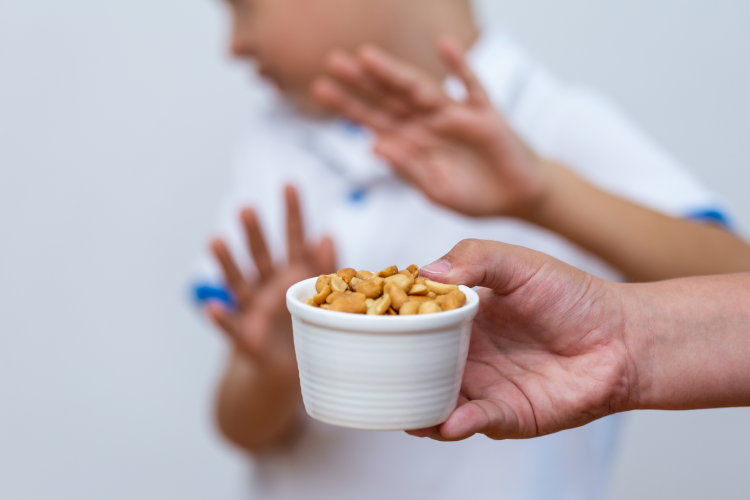Scientists working to ‘reverse’ food allergies with microbiome breakthrough

Food allergy is not a rare condition. Data from the European Federation of Allergy and Airways Diseases Patients Associations (EFA) suggests 17 million Europeans suffer from food reactions a year, of which 3.5 million are under the age of 25. Over the last decade, the number children under five years of age with allergies has doubled and visits to the emergency room to treat anaphylactic shock have increased seven-fold.
“Food allergies and several other chronic diseases have increased dramatically over the past few decades,” Dr Jeffrey Hubbell of the University of Chicago observed at a recent media briefing arranged by the American Chemical Society. “Many of these have been linked to a lack of a lack of a healthy microbiome,” he explained.
Some of the bacteria in the gut microbiome produce metabolites, such as butyrate, that foster the growth of beneficial bacteria and maintain the lining of the gut. If a person’s microbiome is unhealthy and lacks these butyrate-producing bacteria, fragments of partially digested food can leak out of the gut and produce an immune reaction that results in an allergic response.
Working alongside colleagues at the University of Chicago, Dr Hubbell and colleagues noted that a butyrate has shown promise against allergic reactions in lab tests.
“Instead of providing the missing bugs to the patient orally or with a faecal transplant, we thought why don’t we just deliver the metabolites, like butyrate, that a healthy microbiome produces?”
Of course, it isn’t quite as simple as this. Butyrate has a ‘very bad smell’ - like dog poop and rancid butter – and even if you could get people to swallow it, it would be digested before reaching its destination in the lower gut. A new delivery system was required.
To overcome this challenge, the team of scientists made copolymers that consist of one block made of methacrylamide conjugated with a butyrate group as a side chain and a second block made of either methacrylic acid or hydroxypropyl methacrylamide, fellow University of Chicago researcher Dr Shijie Cao elaborated.
“The resulting polymer self assembled into polymeric micelles that tucked the butyrate side chain in their core and masked the compound’s foul smell and taste,” Dr Cao told the online briefing.
A potential treatment for allergies and other inflammatory diseases
The researchers administered these micelles to the digestive systems of mice lacking either healthy gut bacteria or a properly functioning gut lining. After digestive juices released the butyrate in the lower gut, the inert polymers were eliminated in the faeces.
The results were promising. “Micelle treatment we dosed in mice restored their gut protective barrier and microbiome,” Dr Cao detailed. This was in part achieved by increasing production of peptides that kill off harmful bacteria, which made room for butyrate-producing bacteria.
“Most importantly,” he continued, “dosing allergic mice with the micelles prevented a life-threatening anaphylactic response when they are exposed to peanuts.”
And the approach might have therapeutic uses beyond peanut allergies, the researchers believe. “This type of therapy is not antigen specific,” Cao noted. “So theoretically, it can be broadly applied to any food allergies through the modulation of gut health.”
Next up are trials in larger animals, followed by clinical trials. “We aim to use these butyrate-containing micelles as therapeutic drugs to treat diseases such as food allergies as well as chronic inflammatory diseases,” Dr Hubbell concluded.

















